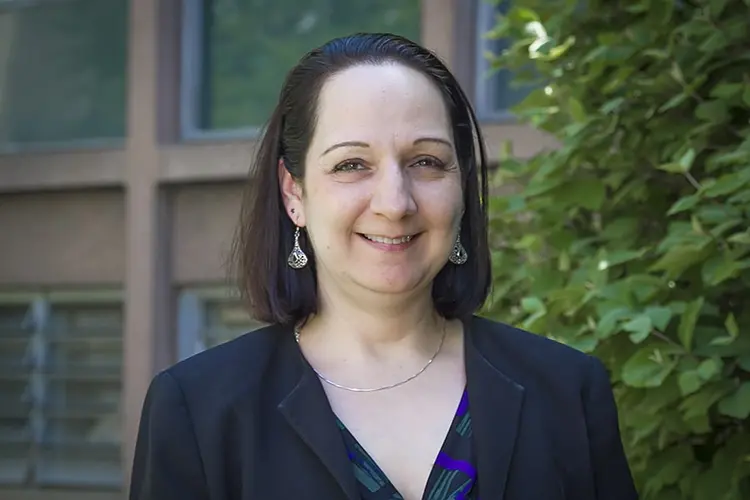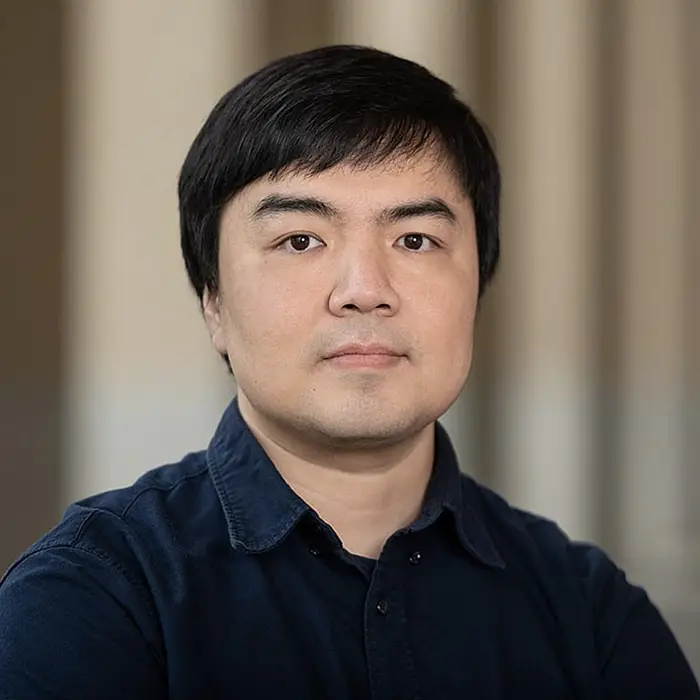Four CMU Faculty Members Named 2022 AAAS Fellows
Media Inquiries
Four Carnegie Mellon University faculty members have been elected as 2022 fellows of the American Association for the Advancement of Science (AAAS)(opens in new window).
Burcu Akinci, Jonathan Cagan and Jeanne VanBreisen from the College of Engineering(opens in new window); and Jian Ma from the School of Computer Science(opens in new window), are among the 508 scientists, engineers and innovators who have been recognized for their distinguished achievements by the world's largest scientific society.
A tradition dating back to 1874, election as an AAAS Fellow is a lifetime honor. The newly elected AAAS Fellows will be honored for their achievements this spring at a celebration in Washington D.C.
Burcu Akinci
Akinci(opens in new window) has been recognized for distinguished contributions to data and model-driven construction and infrastructure management, which is done through the generation and utilization of digital twins for proactive and predictive decision-making. She is the head and a professor of the Department of Civil and Environmental Engineering(opens in new window). Her lab is creating new models and tools to modernize construction and infrastructure management.
Akinci researches the utilization and integration of building information models with data capture technologies, like 3D imaging and embedded sensors, to create digital twins of construction projects and infrastructure operations and to develop approaches that support proactive and predictive operations and management. Akinci is also part of a team working on NASA's Habitats Optimized for Missions of Exploration (HOME) project, where they're helping to create a smart habitat that can process its own data and pass recommendations on to robotic systems or astronauts.Akinci is an outstanding leader and researcher who draws on her previous experience in roles including associate dean for research of the College of Engineering, co-chair of civil engineering's Diversity, Equity, and Inclusion Committee, and founding chair of the ASCE Taskforce on Fostering Inclusive Academic Communities. Elected in 2021, she currently serves on the National Academy's board on Infrastructure and the Connected Environment.
Jonathan Cagan
Cagan(opens in new window) has been recognized for distinguished contributions to the field of design theory and methodology, particularly as it applies to transformational product design, innovation and automation. His research merges AI, machine learning and optimization methods with cognitive science problem solving. He works on topics ranging from hybrid human/AI teams, to biomechanical systems, to user-centered design and integrated product development.
Cagan's career spans collaborative and innovative work in education, research and industry. He is the head and a professor of the Department of Mechanical Engineering(opens in new window). Cagan served as interim dean of the College of Engineering and special adviser to the provost, and co-founded and co-directed the Integrated Innovation Institute(opens in new window). He is a Fellow in the American Society of Mechanical Engineers and was awarded with the ASME Design Theory and Methodology, Design Automation, and Ruth and Joel Spira Outstanding Design Educator Awards.
Jian Ma
Ma(opens in new window) is the Ray and Stephanie Lane Professor of Computational Biology.
Ma earned the honor of fellow "for significant contributions to the development of computational biology methods for studying genome structure and function." He joined Carnegie Mellon in 2016 from the University of Illinois at Urbana-Champaign, where he was a faculty member. His research focuses on developing computational methods — particularly machine learning algorithms — to uncover the human genome and cellular organization and study their implications for health and disease.
Ma's lab continuously explores new paradigms at the interface between machine learning and biomedicine, including recently developing a series of new algorithms for single-cell 3D epigenomics and spatial genomics. Since 2020, he has led a $10 million multi-institutional, multidisciplinary National Institutes of Health center for unveiling the complexity of the cell nucleus.
Jeanne VanBriesen
VanBriesen has been recognized for outstanding contributions to the field of environmental engineering, particularly in modeling biodegradation of chemical mixtures and assessing the role of energy systems on drinking water. VanBriesen is a professor in the Department of Civil and Environmental Engineering and the Department of Engineering and Public Policy(opens in new window). She is currently serving at the U.S. National Science Foundation as the director of the Division for Chemical, Bioengineering, Environmental, and Transport Systems within the Engineering Directorate. Her research is in environmental systems, including urban water system sustainability and the built environment water cycle, and the energy-water nexus and watershed decision making.
VanBriesen has received numerous awards and her research has been funded by the National Science Foundation, the Department of Defense, the Colcom Foundation, the Heinz Endowments, the Packard Foundation, and the Pennsylvania Infrastructure Technology Alliance. She has served on the U.S. EPA Science Advisory Board and the National Science Foundation Engineering Directorate Advisory Committee. She has been an officer of the Association for Environmental Engineering and Science Professors, the Consortium of Universities for the Advancement of Hydrologic Sciences and the Ohio River Basin Consortia for Research and Education.
— Related Content —

Designing A National Institute For AI In Construction

CMU CompBio Researchers Take Leading Roles in NIH Program

VanBriesen Named Division Director of the National Science Foundation's CBET




